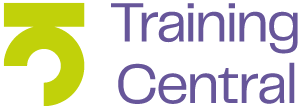When does a barrier become an excuse? We are all guilty of ‘not having enough time’ to focus on our own development. Yet, surely if we are not prepared to allocate time to develop ourselves, how can we expect our team to allocate time for their personal development? In turn, how then does the organisation improve and stay ahead of the competition?
Keeping up to date and relevant is a fundamental way to stay in the game. To stand out and progress, I tend to think about what would make me more employable? What can people around me offer that I can’t? How can I be more useful to my organisation and what value do I currently add? Having this approach gives me the motivation to continually look for new opportunities to learn and increase my skill set. I could use the excuse that I haven’t got the time, but in fact, the thought of raising my skills enough actually to free up more time in the future, is my primary motivation.
My role involves the management of all the ILM delegates that are registered through Innovation Central. I’m accountable for the initial delegate onboarding, managing their written assignment submissions, and most importantly, coaching and mentoring each of them to ensure they are best placed to achieve their qualifications successfully.
I recently travelled over 300 miles to attend a two-day training course. The time needed to travel and attend the programme would impact both my work and home life. Naturally, this caused a dilemma regarding what option was for the best. In the end, I reasoned that it was something I wanted to do, to learn more about myself and to develop in my current role. An additional bonus was the thought of adding another selling point to my CV. So, off I went.
As a result of the course, I have developed in many ways, personally and professionally. The session highlighted that I was an active mentor and that my current role allowed me to use these skills well. It also emphasised that I need to develop my coaching skills to enable people to be accountable for their own success, while also giving them the responsibility to find answers for themselves. I now see myself adapting my approach to get the balance between being a coach and a mentor, which has actually been quite a turning point when supporting ILM delegates. It has, in fact, freed up some of my time. I am no longer typing continuous feedback to try and drip feed information to delegates. Instead, I make suggestions as to where they can find the answers, rather than telling them the answer.
The impact on the business?
My new approach has had an impact on my communication with delegates. I log on every morning and my day starts with emails detailing why delegates can’t meet their expected deadline. I do take on board everyone’s unique situation, but the basic fact is, if they want to complete their qualification, then they need to complete their assignments and that is always in the forefront of my mind. So, using my newly developed coaching skills, I explain this to the delegate and then encourage them to set a realistic target date for themselves, taking into consideration any barriers that they may face. I can then begin to support them to recognise ways to overcome these barriers. My time saved typing reams of feedback is now focussed on providing delegates with much more tailored support to help their learning needs.
In summary, my own development is enabling many individuals to develop themselves, which has then, in turn, helped my organisation, by increasing my efficiency and our ILM pass rates.
Rachel.

